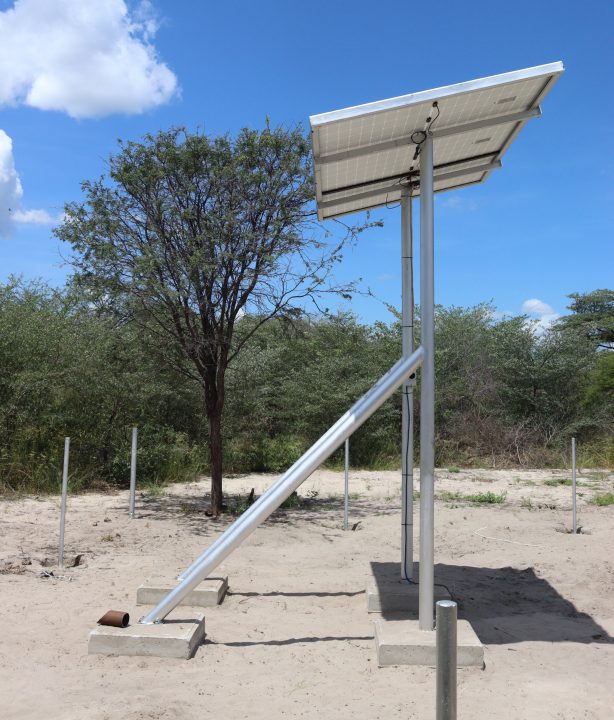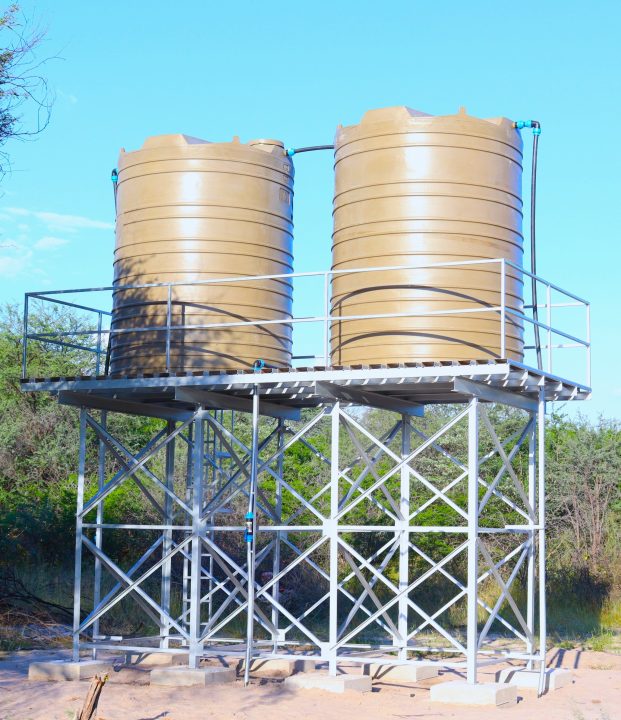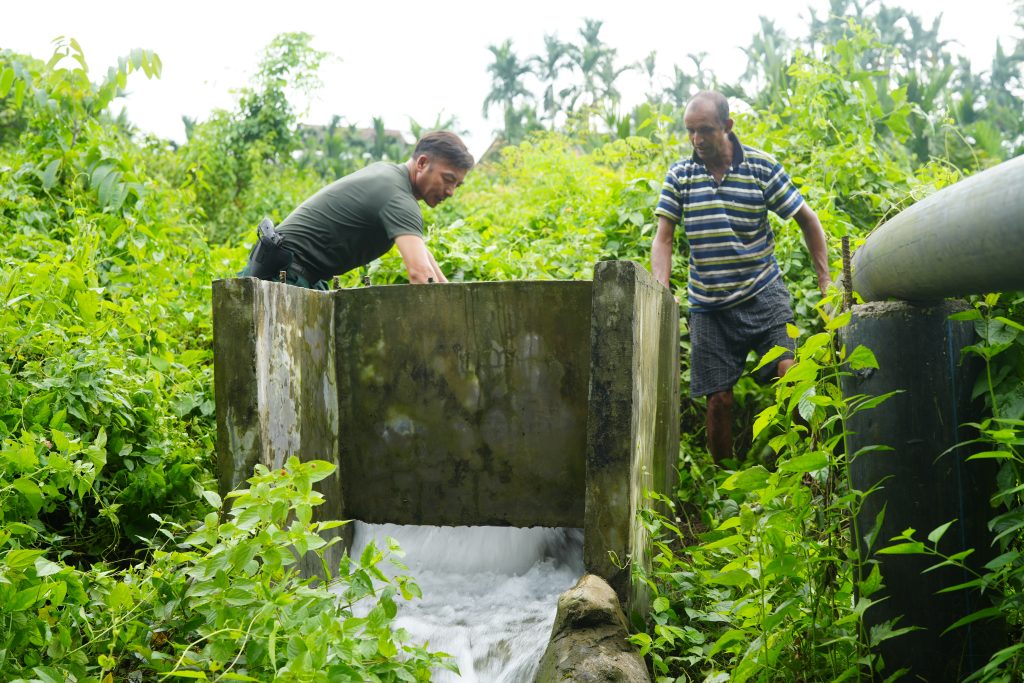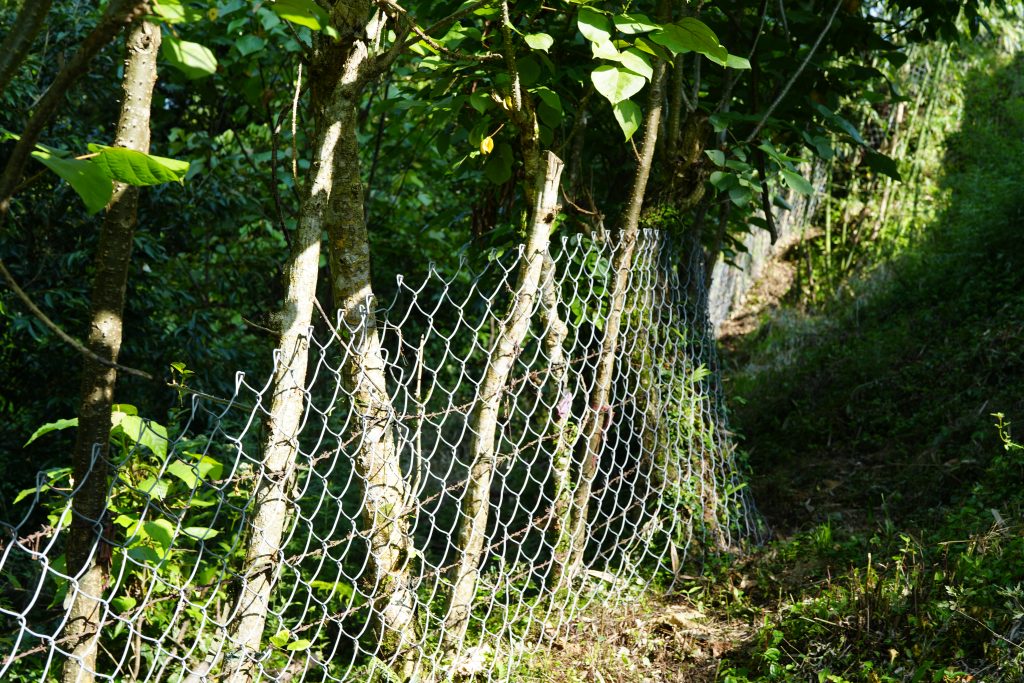Purpose
Improve water access, supply, and availability through a solar-powered borehole for communities and their livestock in the Zambezi Region of Namibia.
Climate Impacts
Community members in Machita reported the following impacts:
• Limited water sources
• Crop failure
• Less wild food
• Poor livestock health due to water scarcity and declining pasture productivity
• Loss of livelihood because of declines in crop yields, livestock health, and wild fruit abundance
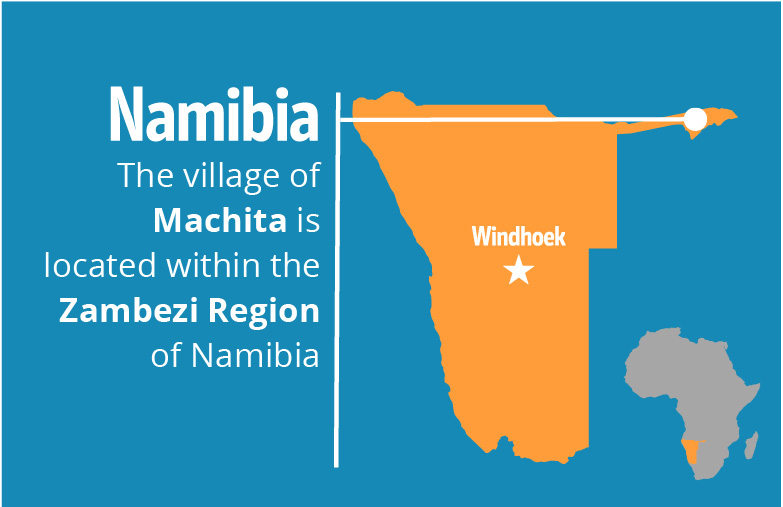
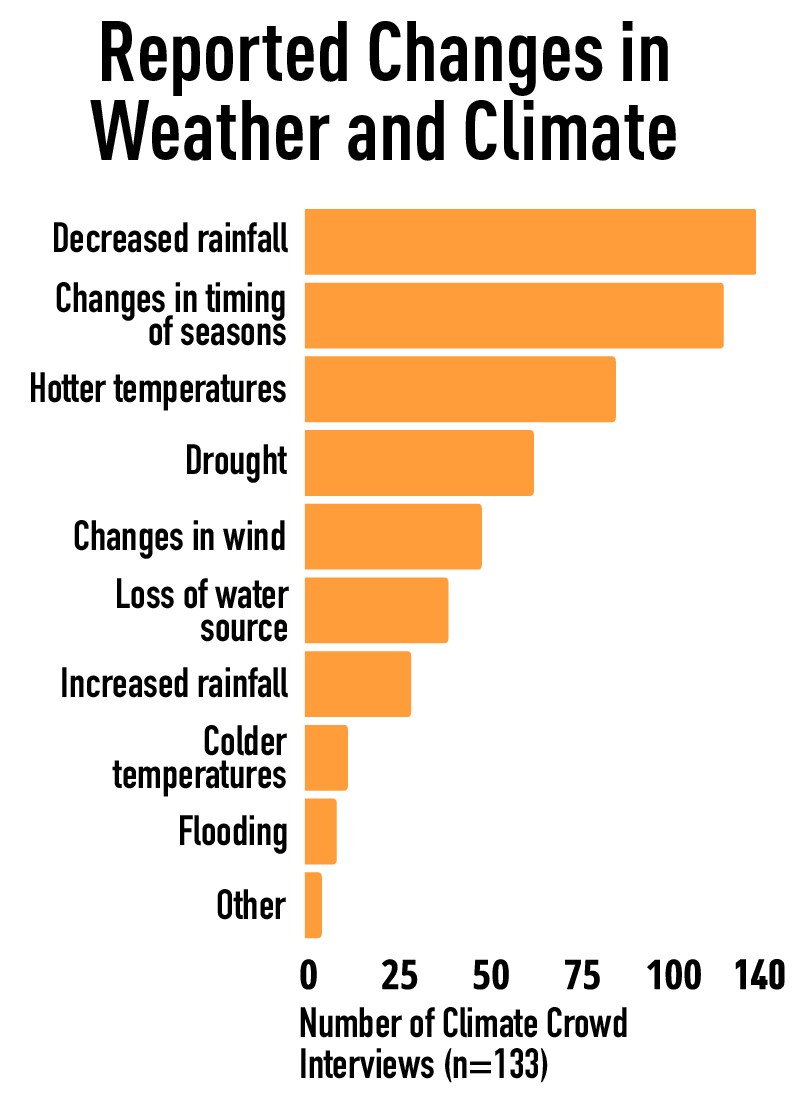
Activities
Site selection
A target site wsd selected after consultations with the communities and Namibia’s Ministry of Agriculture, Water, and Land Reform. From the consultations, a pre-existing borehole was identified for rehabilitation.
Water capacity and quality tests
Borehole depth, capacity, and water quality tests were conducted to ascertain what size pump would be needed to extract water, and whether the water met potability standards for community and livestock use.
Water infrastructure and solarization installation
A water pump, outlet tap, livestock troughs, and water storage tanks were installed at the site. After plumbing was completed, solar panels were installed to sustainably power the water pump.
Security installation
Security fencing was erected at the site to protect the equipment, primarily the water pump and solar panels. To further increase security, several community members moved closer to the borehole.
Community handover
A borehole committee was formed to ensure the sustainable use of the borehole and water. The committee will also report any issues with the borehole to the Ministry of Agriculture, Water, and Land Reform.
project outcomes
project design
Namibia is one of the driest countries in Africa, frequently experiencing annual droughts that lead to water shortages for both people and animals nationwide, causing significant livestock losses. In Machita, a vulnerable community in the Zambezi Region, residents often had to walk long distances to purchase water from neighboring villages or rely on wells. Over the past few years, residents have depended on rainwater harvested from rooftops and unreliable hand-dug wells up to 5 kilometers away to fetch water for themselves and their livestock. As climate change has led to shorter rainy seasons and unpredictable rainfall patterns, water availability has become even more unreliable. To address this crisis, an existing hand-pump borehole in Machita was rehabilitated to enhance water access, security, and sustainability.
A collaborative effort between the Machita community and Namibia’s Ministry of Agriculture, Water, and Land Reform led to the selection and rehabilitation of one borehole. The work was carried out by external contractors who also tested the site to ensure there was adequate water supply. The project converted the existing hand-pump borehole into a solar-powered system, installing three 380-watt solar panels to operate the borehole’s submersible pump—enhancing the project’s environmental sustainability.
The borehole was equipped with two 10,000-liter water tanks to store water and ensure availability in case of malfunctions. The borehole was also equipped with taps and troughs for livestock to use, ensuring water security for household and agricultural use. To protect this vital water source from wildlife and intruders, a fence with locks was installed. Additionally, some community members relocated closer to the borehole to help ensure their security. A borehole committee, composed of local community members, was also formed to oversee the long-term sustainability and management of the water source.
Solar panels and water storage tanks at the borehole site
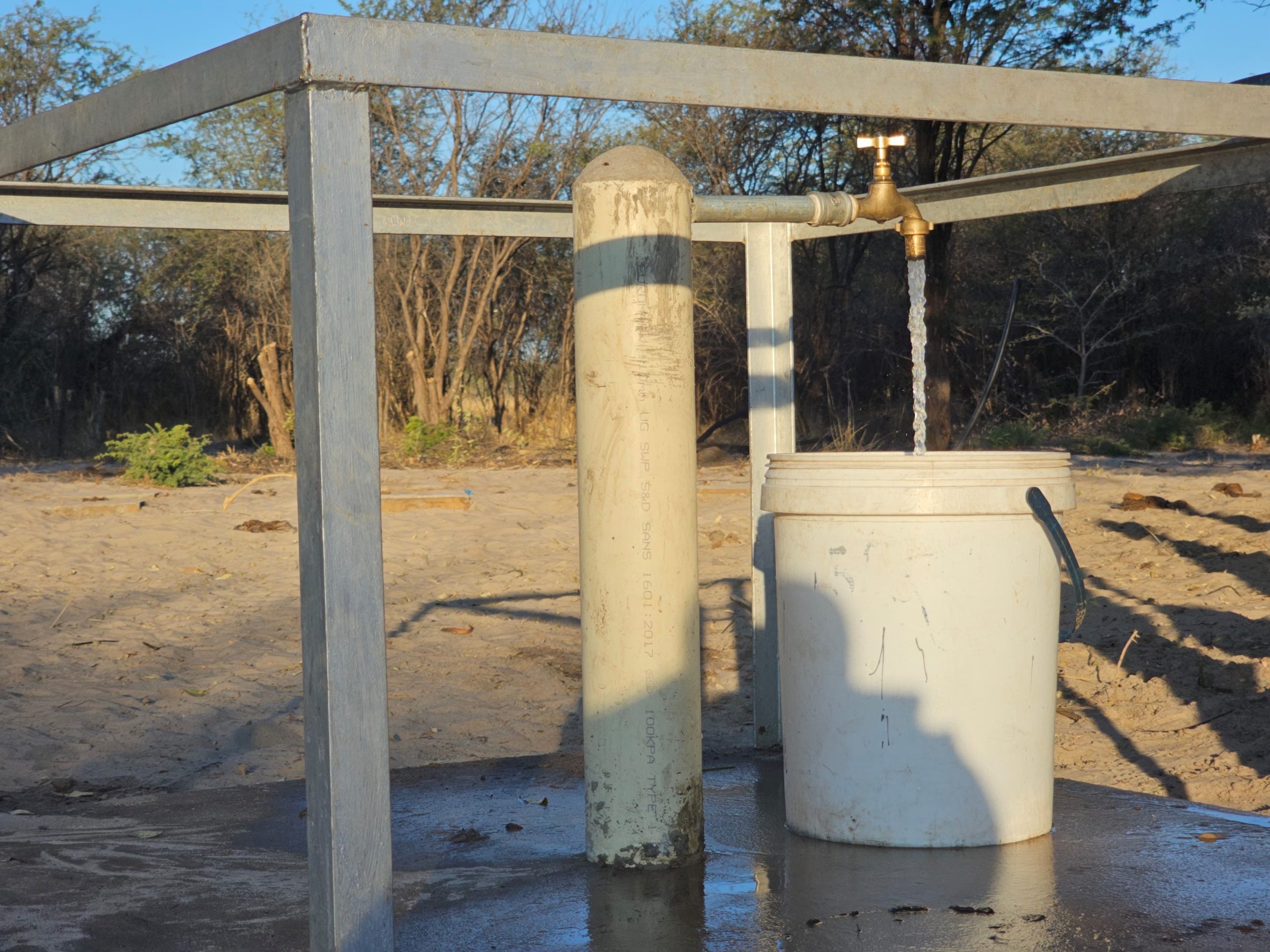
A tap for the borehole in Machita
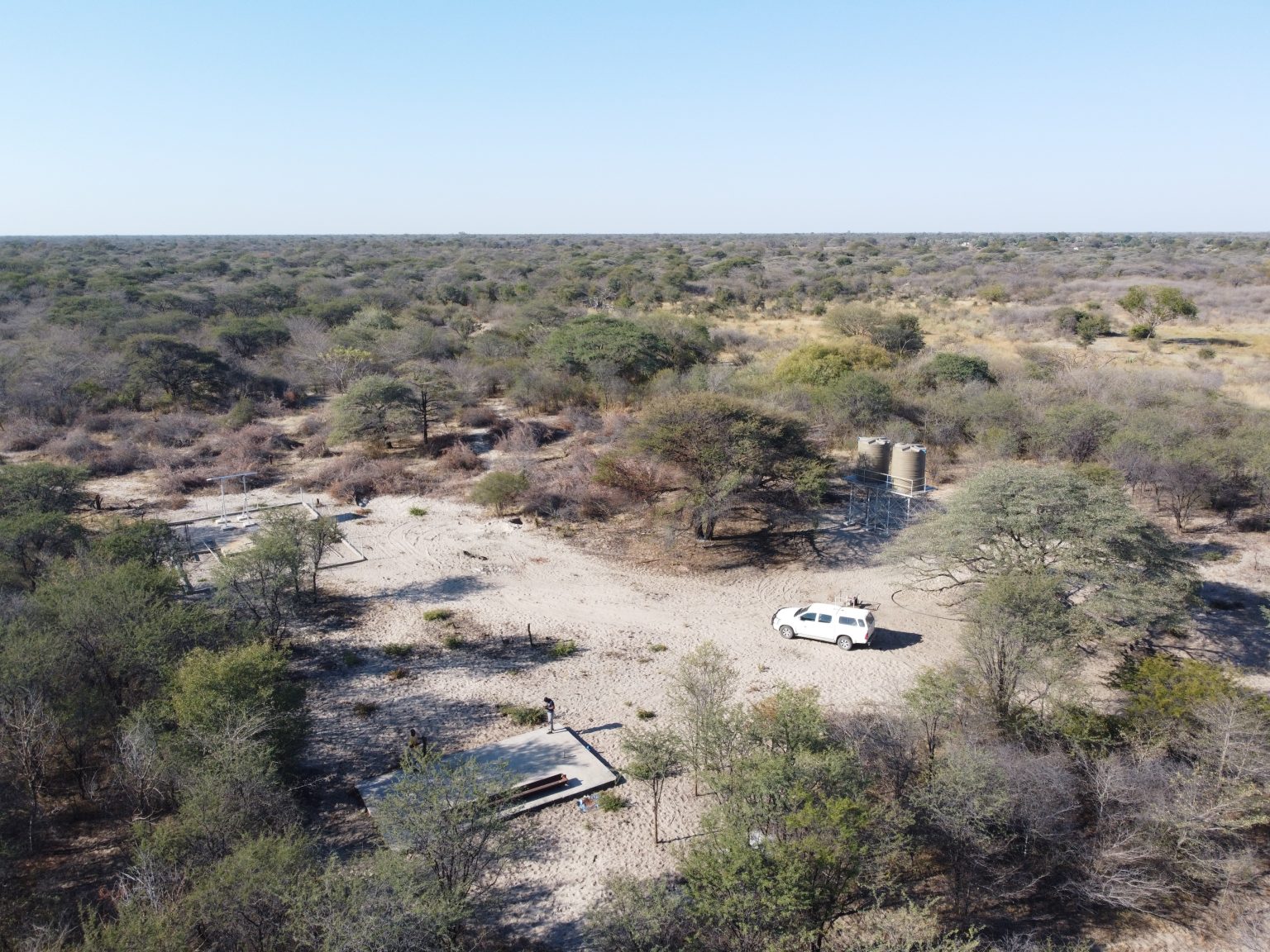
Aerial view of the borehole site
Image credits: Benitto Ndana/WWF-Namibia

